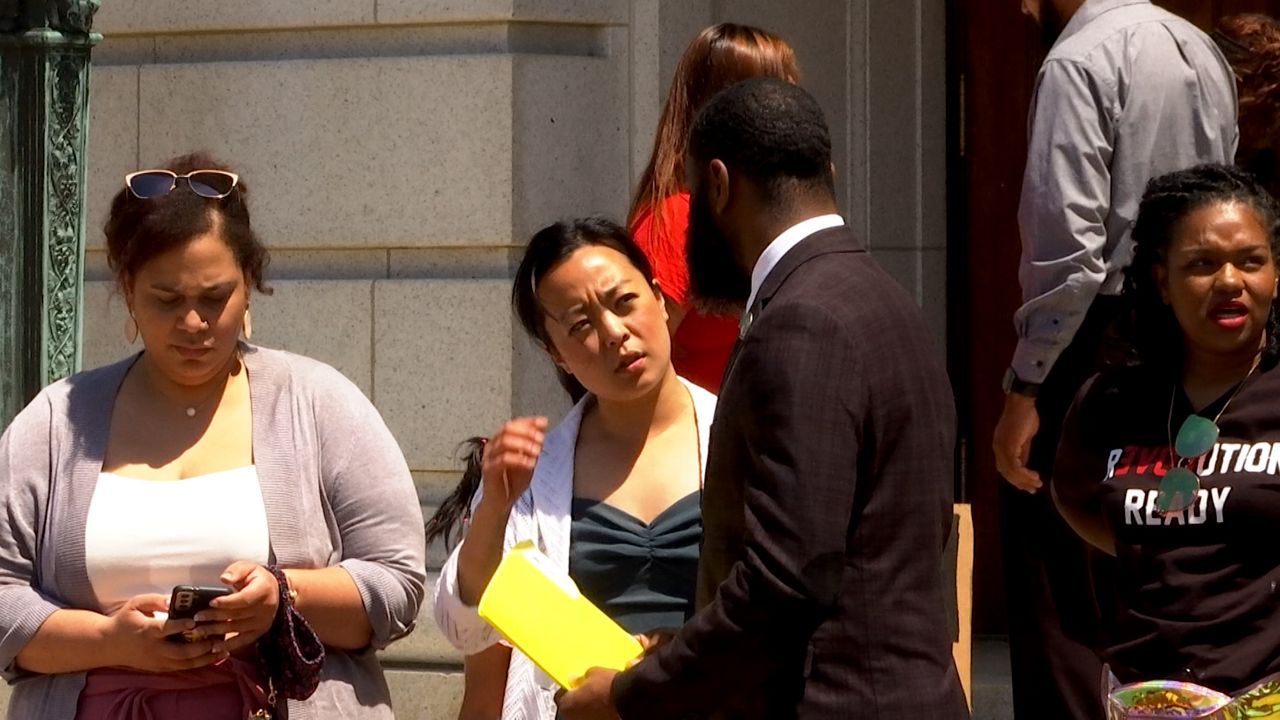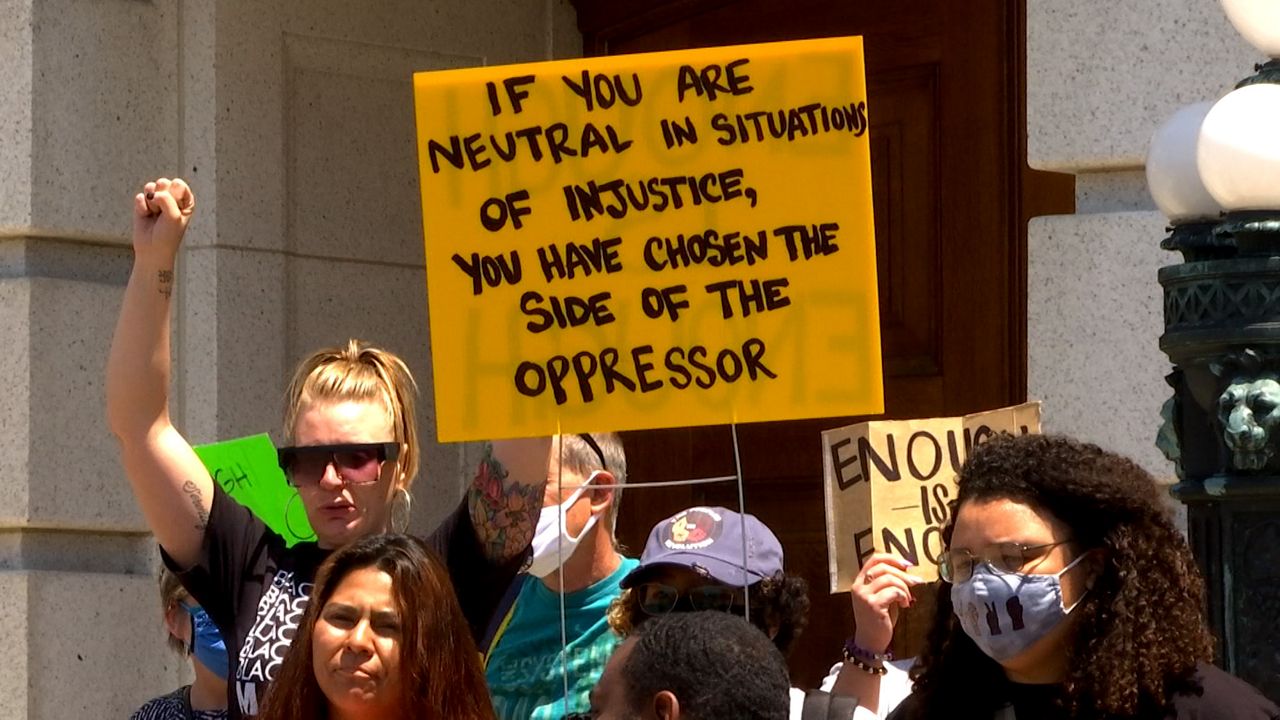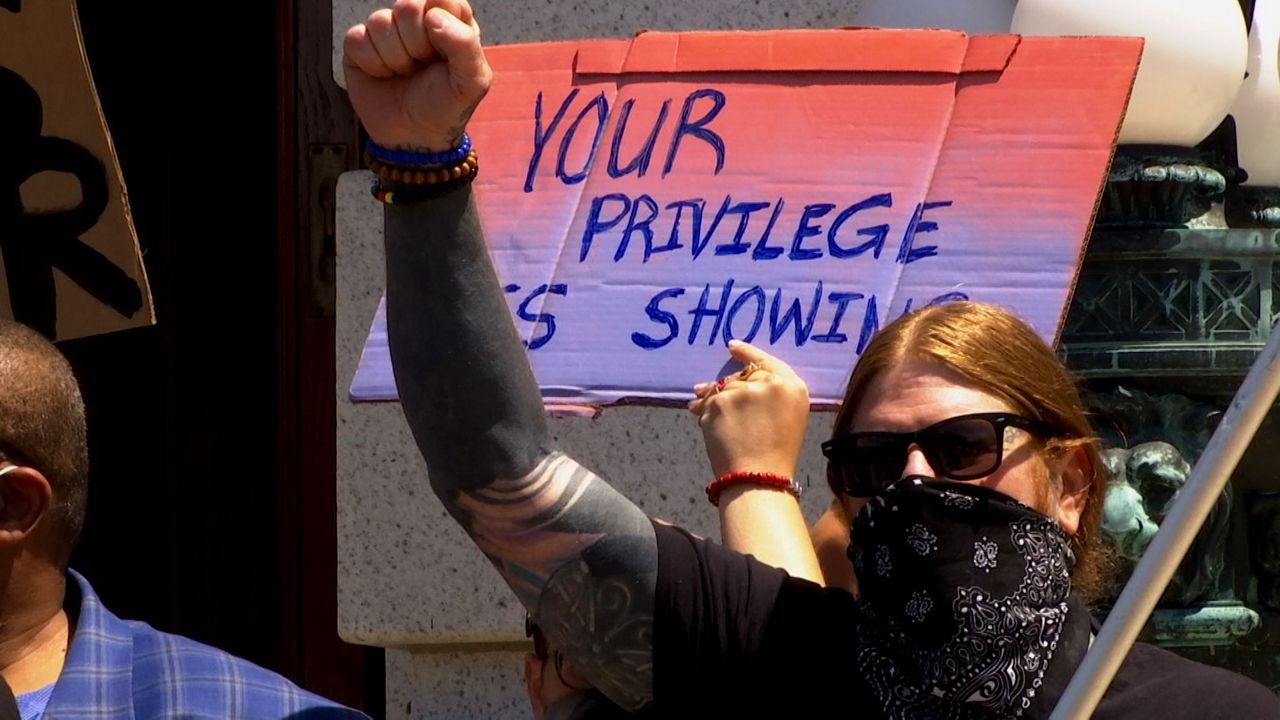MADISON, Wis.— As several police reform bills from the bipartisan Speaker's Task Force on Racial Disparities head to the floor for a vote, a dozen new bills backed by Democrats were introduced Thursday.
“Enough is Enough” is a package of 12 bills aimed at police and justice reform.
The lawmakers who back the package said their bills build off of what the Speaker's Task Force on Racial Disparities, which is made up of lawmakers from both sides of the aisle, has already come up with.

State Rep. Francesca Hong (D-Madison) and State Rep. David Bowen (D-Milwaukee) said they don't want to talk lip service only to come up with underwhelming policies.
“We are here to say that enough is enough,” Hong said. “It is due time for criminal justice, meaningful criminal justice reform in this state.”
The package of bills aims to reshape police training and policies and enhance transparency through measures such as requiring officers to give out contact cards when asked and prohibiting “warrior-style” training.

Rebecca Burrell, who was a member of the speaker's task force, said those who need to be held accountable had too much say over how that would be done.
“If you will excuse my language, these piss poor bills do not meet the desires of this community,” Burrell said.

State Rep. Bowen said his package of bills came about from listening to the community he represents.
“Now, it's time to have a full conversation of everything that was excluded from that table,” Bowen said. “The table was created in a way that only certain people had voices at it.”
AED training
- This bill would require police recertification training to require at least one hour of first aid training every year, which would count towards the required 24 hours
Collective bargaining
- This bill would prohibit collective bargaining units that represent public safety employees from bargaining for the reversal of a decision by a police chief to fire a law enforcement officer
Contact cards
- This bill would require each Wisconsin law enforcement agency to provide each of its law enforcement officers with an informational card including the officer's name, badge number, the officer's direct supervisor's telephone number, and either a link to the agency's formal compliant web page or a clear description of the process to file a complaint if the agency doesn't have a website
Disciplinary procedures
- This bill would require any vote by the Fire and Police Commission to overrule a disciplinary decision of a police chief would need a 2/3rds supermajority vote, instead of a simple majority
Investigations of officer-involved deaths
- Under current law, at least two investigators not employed by the law enforcement agency that employs an involved officer investigate a death that involves a law enforcement officer
- This bill would specify that the investigators may not be individuals who were employed or whose immediate family member was employed within the last 10 years by the law enforcement agency that employs the involved officer
Prosecuting officer-involved deaths
- Under current law, an investigation of a law enforcement officer-involved death is required and a report of the investigation must be provided to the district attorney of the county in which the death happened, which they use to decide whether or not to prosecute the officer
- This bill would instead require the district attorney to report the investigation to a special prosecutor appointed by the court who would decide whether or not to prosecute the officer
Risk assessment tools
- This bill would create a grant program administered by the Department of Justice to incorporate a pre-arrest risk assessment tool into their practices
Use-of-force policies
- This bill would require use-of-force policies to include the following: that the primary duty of all law enforcement is to preserve the life of all individuals, that deadly force is only to be used as a last resort, that officers utilize skills and tactics to avoid the likelihood of force becoming necessary, that if use-of-force is necessary that the least amount of force necessary is used, and that officer must take reasonable action to prevent any unreasonable use-of-force by their colleagues
Use-of-force reporting
- This bill would require that the Department of Justice release an annual report to the public regarding use-of-force incidents, including demographic information for each incident
Use-of-force training
- This bill would require law enforcement officers to complete at least 8 hours of annual training on use-of-force options and techniques to de-escalate potentially unstable situations
Violence prevention grants
- This bill would require that the Department of Health Services create a grant program and committee to award grants to cities and counties for conducting violence prevention programs
Prohibiting warrior training
- This bill would prohibit governmental activities related to “warrior-style” training, which is training for law enforcement officers that dehumanize people or encourages aggressive conduct by the officer, which increases the likelihood of or willingness to use deadly force


